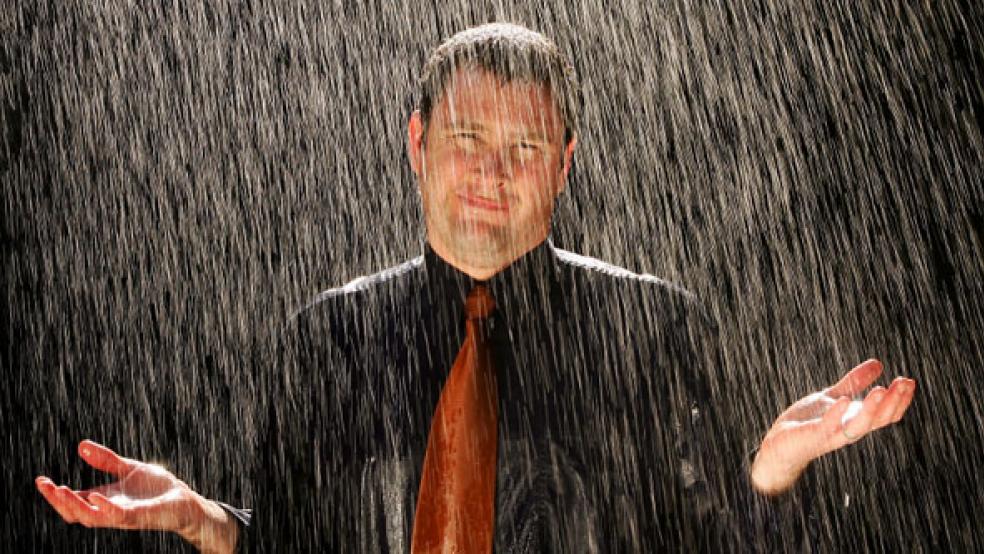A recent survey suggests that President Obama’s constant sniping at wealthy Americans could torch the recovery. Pam Danziger, president of Unity Marketing and long-time tracker of luxury goods markets, reports that sentiment among the high-end crowd – those President Obama continually hectors for not paying their “fair share” – has taken an unexpected nosedive. How important is this group? More than you might think; a millionaire here, a billionaire there, and pretty soon you’re talking…more than 40 percent of the consumer economy.
While lambasting corporate jet owners might make great campaign sound bites, it may well be dampening spending, which was down in June for the first time in two years, according to the Commerce Department.
Ms. Danziger regularly surveys the spending intentions and sentiment of more than 1,200 well heeled Americans, reporting back to the luxury goods trade on prospective holiday shopping and the like. Suddenly, her news is extremely glum. According to her Luxury Consumption Index, sentiment in the last quarter took the steepest dive in years, falling to 66 points, down from 82.8 points the period before and at nearly the same level as registered during the misery of mid-2009.
“The last time we saw something like this it was right before entering the terrible recession – between the fourth quarter of 2007 and first quarter of 2008,” says Ms. Danziger. “I don’t know what to make of it.”
The government has been saying
we’re out of recession. I beg to differ.”
She claims the survey is a good predictor of economic activity – with two or three quarters’ lead -- among top earners, and that the recent plunge augurs ill for the economy. “If those at the top end feel stressed and are holding back spending, imagine what it says about middle-income households.” Indeed, her work suggests that outlays by our top earners tumbled in the second quarter by 8.4 percent from first-quarter levels and by 18 percent from the year-earlier total. That can’t be good; it could get worse. “We are very, very close to a double dip. The government has been saying we’re out of recession. I beg to differ.”
Danziger and her team have been startled by the index’ collapse, especially since the stock market has buoyed the net worth of our wealthiest citizens. Chief Economist Tom Bodenberg was quoted in a press release saying “While the index during the previous several quarters had shown normal variability, the coming several months portend a confidence level significantly lower than the current level.” He further says that expectations of a near-term snap-back in consumer spending are unlikely to be met.
While President Obama continues to portray upper-income Americans as not shouldering a fair share of the nation’s taxes (though the top ten percent pays 70 percent and the top quarter pays 86 percent of all federal income taxes), Ms. Danziger says that even high earners are worried about spending. They are also concerned about the nation’s future. “The people we survey are at the very top-- they are managers and small business owners,” she says. “They’re educated and they read the news. They’re uncertain about the economy and about their place in the economy.”
Danziger’s group is not alone in finding our wealthiest citizens downcast. Just last week UBS Wealth Management Amercias polled 1,000 clients and found increased pessimism about the nation’s prospects. Nearly two-thirds of the group, who have at least $250,000 in investable assets, cited the size of the government’s debt as cause for concern, up from 59 percent in April. Overall, 60 percent were pessimistic about near-term prospects, up from 53 percent three months ago. Concern about the debt ceiling impasse weighed on those surveyed; some 40 percent of whom were steering clear of the stock market until a solution was reached.
During the debate over raising the debt ceiling, President Obama has consistently scolded Republicans for not allowing taxes to rise on our wealthiest citizens. It is an appealing political stance; polls have shown that most Americans feel that raising taxes on the well-off is a dandy idea. Of course, most people would not be impacted by a tax hike on those earning over $250,000. It’s always agreeable to have someone else pay more.
But what about the economic consequences of higher taxes on our highest earners? Most resistance to the proposal has focused on the impact that a greater tax burden might have on small businesses. This issue is hotly debated. The GOP points out that more than half of small business income falls into the “over $250,000” category that Mr. Obama targets. Democrats note that only 3 percent of small business enterprises would be impacted. Which is a more important guidepost? It depends on which side of the aisle you sit on.
Neither side has focused much on how the threat of higher taxes might impact the spending of wealthy individuals. Has the president’s constant harangue about private jets and tax loopholes dimmed optimism and caused our better-off citizens to pull in their horns? Few organizations actually poll upper income Americans, which is why Ms. Danziger’s report should perhaps attract the notice of those trying to boost economic activity. If indeed the wealthy account for 40 percent of spending, dampening their ability to buy or even their optimism about the future might be good politics, but surely it is bad economics.






